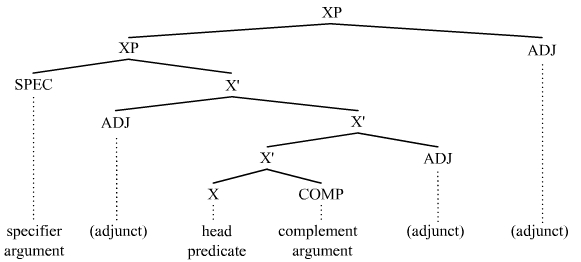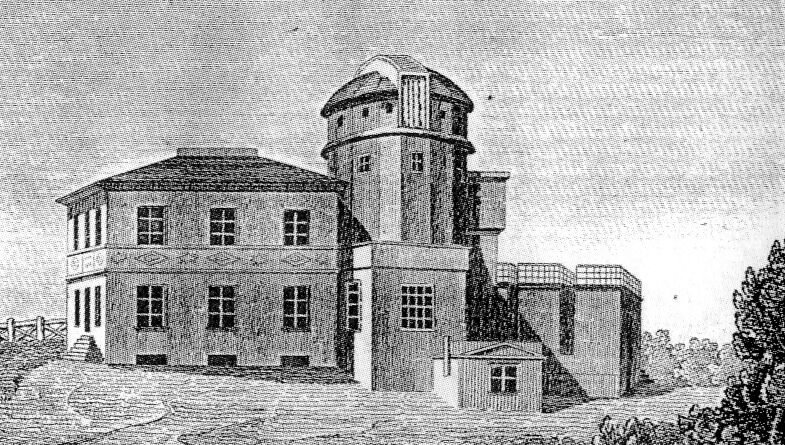|
Elena Anagnostopoulou
Elena Anagnostopoulou (born 27 January 1967 in Athens, Greece) is a Greek theoretical linguist and syntactician. She is currently Professor of Theoretical Linguistics at the University of Crete. Education and career Anagnostopoulou received her PhD in 1994 from the University of Salzburg. Following this, she held a postdoctoral position at the MIT from 1997 to 1998, before taking up a position as assistant professor at the University of Crete in 1998, where she remains to this day. She was promoted to Associate Professor in 2005 and to full professor in 2009. In 2007 she returned to MIT as a visiting associate professor. Anagnostopoulou works within the framework of generative grammar, and is known for her work in syntax, morphology, and historical linguistics. Within these fields she has focused on the phenomena of case, agreement, person, argument structure, and clitics. Honours and awards Anagnostopoulou was awarded a Friedrich Wilhelm Bessel Research Award by the Alexan ... [...More Info...] [...Related Items...] OR: [Wikipedia] [Google] [Baidu] |
Athens
Athens ( ; el, Αθήνα, Athína ; grc, Ἀθῆναι, Athênai (pl.) ) is both the capital and largest city of Greece. With a population close to four million, it is also the seventh largest city in the European Union. Athens dominates and is the capital of the Attica region and is one of the world's oldest cities, with its recorded history spanning over 3,400 years and its earliest human presence beginning somewhere between the 11th and 7th millennia BC. Classical Athens was a powerful city-state. It was a centre for the arts, learning and philosophy, and the home of Plato's Academy and Aristotle's Lyceum. It is widely referred to as the cradle of Western civilization and the birthplace of democracy, largely because of its cultural and political influence on the European continent—particularly Ancient Rome. In modern times, Athens is a large cosmopolitan metropolis and central to economic, financial, industrial, maritime, political and cultural life in Gre ... [...More Info...] [...Related Items...] OR: [Wikipedia] [Google] [Baidu] |
Argument (linguistics)
In linguistics, an argument is an expression that helps complete the meaning of a predicate, the latter referring in this context to a main verb and its auxiliaries. In this regard, the ''complement'' is a closely related concept. Most predicates take one, two, or three arguments. A predicate and its arguments form a ''predicate-argument structure''. The discussion of predicates and arguments is associated most with (content) verbs and noun phrases (NPs), although other syntactic categories can also be construed as predicates and as arguments. Arguments must be distinguished from adjuncts. While a predicate needs its arguments to complete its meaning, the adjuncts that appear with a predicate are optional; they are not necessary to complete the meaning of the predicate. Most theories of syntax and semantics acknowledge arguments and adjuncts, although the terminology varies, and the distinction is generally believed to exist in all languages. Dependency grammars sometimes call arg ... [...More Info...] [...Related Items...] OR: [Wikipedia] [Google] [Baidu] |
Living People
Related categories * :Year of birth missing (living people) / :Year of birth unknown * :Date of birth missing (living people) / :Date of birth unknown * :Place of birth missing (living people) / :Place of birth unknown * :Year of death missing / :Year of death unknown * :Date of death missing / :Date of death unknown * :Place of death missing / :Place of death unknown * :Missing middle or first names See also * :Dead people * :Template:L, which generates this category or death years, and birth year and sort keys. : {{DEFAULTSORT:Living people 21st-century people People by status ... [...More Info...] [...Related Items...] OR: [Wikipedia] [Google] [Baidu] |
1967 Births
Events January * January 1 – Canada begins a year-long celebration of the 100th anniversary of Confederation, featuring the Expo 67 World's Fair. * January 5 ** Spain and Romania sign an agreement in Paris, establishing full consular and commercial relations (not diplomatic ones). ** Charlie Chaplin launches his last film, ''A Countess from Hong Kong'', in the UK. * January 6 – Vietnam War: United States Marine Corps, USMC and Army of the Republic of Vietnam, ARVN troops launch ''Operation Deckhouse Five'' in the Mekong Delta. * January 8 – Vietnam War: Operation Cedar Falls starts. * January 13 – A military coup occurs in Togo under the leadership of Étienne Eyadema. * January 14 – The Human Be-In takes place in Golden Gate Park, San Francisco; the event sets the stage for the Summer of Love. * January 15 ** Louis Leakey announces the discovery of pre-human fossils in Kenya; he names the species ''Proconsul nyanzae, Kenyapithecus africanus''. ** American footbal ... [...More Info...] [...Related Items...] OR: [Wikipedia] [Google] [Baidu] |
Academic Staff Of The University Of Crete
An academy (Attic Greek: Ἀκαδήμεια; Koine Greek Ἀκαδημία) is an institution of secondary or tertiary higher learning (and generally also research or honorary membership). The name traces back to Plato's school of philosophy, founded approximately 385 BC at Akademia, a sanctuary of Athena, the goddess of wisdom and skill, north of Athens, Greece. Etymology The word comes from the ''Academy'' in ancient Greece, which derives from the Athenian hero, ''Akademos''. Outside the city walls of Athens, the gymnasium was made famous by Plato as a center of learning. The sacred space, dedicated to the goddess of wisdom, Athena, had formerly been an olive grove, hence the expression "the groves of Academe". In these gardens, the philosopher Plato conversed with followers. Plato developed his sessions into a method of teaching philosophy and in 387 BC, established what is known today as the Old Academy. By extension, ''academia'' has come to mean the accumulation, dev ... [...More Info...] [...Related Items...] OR: [Wikipedia] [Google] [Baidu] |
Linguists From Greece
Linguistics is the scientific study of human language. It is called a scientific study because it entails a comprehensive, systematic, objective, and precise analysis of all aspects of language, particularly its nature and structure. Linguistics is concerned with both the cognitive and social aspects of language. It is considered a scientific field as well as an academic discipline; it has been classified as a social science, natural science, cognitive science,Thagard, PaulCognitive Science, The Stanford Encyclopedia of Philosophy (Fall 2008 Edition), Edward N. Zalta (ed.). or part of the humanities. Traditional areas of linguistic analysis correspond to phenomena found in human linguistic systems, such as syntax (rules governing the structure of sentences); semantics (meaning); morphology (structure of words); phonetics (speech sounds and equivalent gestures in sign languages); phonology (the abstract sound system of a particular language); and pragmatics (how social contex ... [...More Info...] [...Related Items...] OR: [Wikipedia] [Google] [Baidu] |
Sabine Iatridou
Sabine Iatridou is a linguist whose work on syntax and the syntax‐semantics interface has helped to delineate theories of tense and modality. Academic career Iatridou was born in Thessaloniki, spent her childhood in the Netherlands, and then returned to Greece to finish high school and attend college. She earned a DDS in 1982, an MA in Anthropology in 1986 from the University of Hawaii at Manoa, and a PhD in Linguistics from the Massachusetts Institute of Technology (MIT) in 1991. Her dissertation, under the supervision of Noam Chomsky, explored the topic of conditionals. After graduation she worked as an Assistant Professor of Linguistics at the University of Pennsylvania, before returning to MIT to take up a position as Professor. She served as director of the MIT Linguistics PhD program for many years. She has chaired a number of dissertations on topics in theoretical linguistics, as well many exploring semantic and syntactic structures in a range of indigenous langu ... [...More Info...] [...Related Items...] OR: [Wikipedia] [Google] [Baidu] |
Artemis Alexiadou
Artemis Alexiadou (Άρτεμις Αλεξιάδου, born 13 February 1969 in Volos) is a Greek linguist active in syntax research working in Germany. She is professor of English linguistics at the Humboldt University of Berlin. Education Alexiadou began her studies in Linguistics at the age of 17 at the National and Kapodistrian University of Athens. After graduating in 1990, Alexiadou undertook a master's degree at the University of Reading and then continued on to the Zentrum für Allgemeine Sprachwissenschaft in Berlin. In 1994 Alexiadou gained a PhD from the University of Potsdam and also passed her Habilitation there in 1999. Career After gaining a habilitation, Alexiadou researched at MIT, Princeton University and the University of Pennsylvania on a Heisenberg fellowship and was guest professor in Tübingen and Potsdam. From 2002 until 2015 Alexiadou was Professor for theoretical and English linguistics and head of the Institute of Linguistics at the University of Stuttg ... [...More Info...] [...Related Items...] OR: [Wikipedia] [Google] [Baidu] |
Academia Europaea
The Academia Europaea is a pan-European Academy of Humanities, Letters, Law, and Sciences. The Academia was founded in 1988 as a functioning Europe-wide Academy that encompasses all fields of scholarly inquiry. It acts as co-ordinator of European interests in national research agencies. History The concept of a 'European Academy of Sciences' was raised at a meeting in Paris of the European Ministers of Science in 1985. The initiative was taken by the Royal Society (United Kingdom) which resulted in a meeting in London in June 1986 of Arnold Burgen (United Kingdom), Hubert Curien (France), Umberto Colombo (Italy), David Magnusson (Sweden), Eugen Seibold (Germany) and Ruurd van Lieshout (the Netherlands) – who agreed to the need for a new body. The two key purposes of Academia Europaea are: * express ideas and opinions of individual scientists from Europe * act as co-ordinator of European interests in national research agencies It does not aim to replace existing national a ... [...More Info...] [...Related Items...] OR: [Wikipedia] [Google] [Baidu] |
Alexander Von Humboldt Foundation
The Alexander von Humboldt Foundation (german: Alexander von Humboldt-Stiftung) is a foundation established by the government of the Federal Republic of Germany and funded by the Federal Foreign Office, the Federal Ministry of Education and Research, the Federal Ministry for Economic Cooperation and Development as well as other national and international partners; it promotes international academic cooperation between excellent scientists and scholars from Germany and from abroad. Description Every year, the Foundation grants more than 700 competitive research fellowships and awards, primarily going to academics from natural sciences (mathematics included) and the humanities. It allows scientists and scholars from all over the world to come to Germany to work on a research project they have chosen themselves together with a host and collaborative partner. Additionally it funds German scholars' via the Feodor Lynen Fellowships to go anywhere in the world to work on a research proj ... [...More Info...] [...Related Items...] OR: [Wikipedia] [Google] [Baidu] |
Friedrich Wilhelm Bessel
Friedrich Wilhelm Bessel (; 22 July 1784 – 17 March 1846) was a German astronomer, mathematician, physicist, and geodesist. He was the first astronomer who determined reliable values for the distance from the sun to another star by the method of parallax. A special type of mathematical functions were named Bessel functions after Bessel's death, though they had originally been discovered by Daniel Bernoulli and then generalised by Bessel. Life and family Bessel was born in Minden, Westphalia, then capital of the Prussian administrative region Minden-Ravensberg, as second son of a civil servant into a large family. At the age of 14 Bessel was apprenticed to the import-export concern Kulenkamp at Bremen. The business's reliance on cargo ships led him to turn his mathematical skills to problems in navigation. This in turn led to an interest in astronomy as a way of determining longitude. Bessel came to the attention of a major figure of German astronomy at the time, Heinrich Wi ... [...More Info...] [...Related Items...] OR: [Wikipedia] [Google] [Baidu] |




